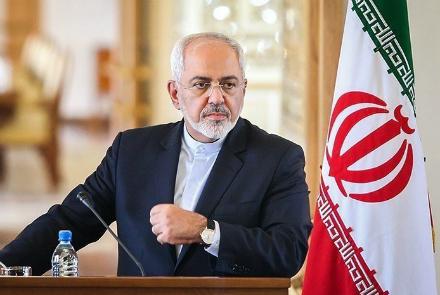In response to a recent statement by the Iranian foreign minister about the role of the Taliban in the future government in Afghanistan, President Ashraf Ghani’s deputy spokesman Shahhussain Murtazavi in a Facebook post has said that Iranian foreign ministry officials have turned into Taliban spokesmen.
In an interview with India’s NDTV on Wednesday Iran’s Foreign Minister Mohammad Javad Zarif said it is impossible to have a future Afghan government without a role for the Taliban. However, he said the group should not have a dominant role in a future Afghan government – which will be formed after a possible peace deal between Kabul government and the militant group.
“I think it would be impossible to have a future Afghanistan without any role for the Taliban. But we also believe that the Taliban do not have, should not have, a dominant role in Afghanistan. Of course, at the end of the day that is a decision the Afghans need to make,” Zarif said.
Murtazavi said that Iran favors the ideology of Mullah Omar, the late founder of Taliban group and said that Iran strongly fears a democratic Afghanistan.
Meanwhile, President Ashraf Ghani has said he does not accept peace at the price of delaying the presidential elections.
“I am ready for any kind of sacrifice for peace, but a sustainable peace, not at the price of delaying the elections,” said Ghani.
It was better for Iran, instead of hearing the voice of the Taliban, to hear the voice of its political opponents.
He said that Iran fears the current freedom in Afghanistan has become a model for Iran.
“Certainly, such statements create division between the Islamic Republic of Iran and Islamic Republic of Afghanistan and this would have a negative impact on our relations. We hope that all world and regional countries respect the leadership and ownership of the Islamic Republic of Afghanistan,” said Sibghatullah Ahmadi, spokesman to Ministry of Foreign Affairs (MoFA).
Earlier this month, Taliban confirmed that the group had visited Tehran on issues around peace and security in Afghanistan.
Later, Iranian media announced that the talks were designed to set parameters for negotiations between the Taliban and the Afghan government.
“A Taliban delegation was in Tehran yesterday (Sunday). They had comprehensive negotiations with the Iranian deputy foreign minister,” Iranian foreign ministry spokesman Bahram Ghasemi said.
This comes after Ali Shamkhani, secretary of Iran’s Supreme National Security Council, said on December 28 that Iranian officials had met with the Taliban and that details were shared with the Afghan government on Shamkhani’s trip to Kabul last week.
Some political analysts meanwhile have said the Taliban are continuing their insurgency to get a role in political power.
“The Taliban are fighting to take on the power, peace will not be restored in Afghanistan until the Taliban do not join the political power,” said political analyst Jawed Kohistani.
But, the High Peace Council (HPC) has called on Pakistan to take solid steps towards peace in Afghanistan.
“Steps taken by Pakistan are not sufficient, Pakistan as a neighboring country needs to do its homework for the peace process in Afghanistan,” said Sayed Ehsan Tahiri, spokesman to HPC.
This comes at a time when President Ashraf Ghani’s Special Representative on Regional Affairs for Consensus on Peace, Mohammad Umer Daudzai, expressed hopes that the war, which has ravaged Afghanistan for over 17 years and cost the United States about $1 trillion, will end in 2019.
Daudzai summed up his optimism in an interview with the Associated Press on Wednesday, saying: “We are naming 2019 as a year of peace for Afghanistan.”
“We have never named a year as the year of peace. Now, from the High Peace Council's address, we are naming 2019 as the year of peace in Afghanistan. And I am pretty sure we will get there,” he said.
There is speculation that Iranian officials, during their recent trips to Afghanistan, have rallied for more roles to be considered for Iran in the peace negotiation talks in Afghanistan.
Iran officials also said they had the ability to bring Taliban to the peace table.
Iran’s Shamkhani had also said Taliban were ready to lay down their arms.
The remarks come amid increasing efforts by the Afghan government and the international community, the United States at the top, on finding a political solution to the war in Afghanistan.
In line with these efforts, the Afghan president’s special envoy Daudzai is on a four-day visit in Islamabad where he has met with Pakistani officials and will hold other meetings in the coming days.
Meanwhile, the US special envoy Zalmay Khalilzad has also started another multi-nation trip on Afghan peace in which he will visit India, China, Afghanistan and Pakistan.


